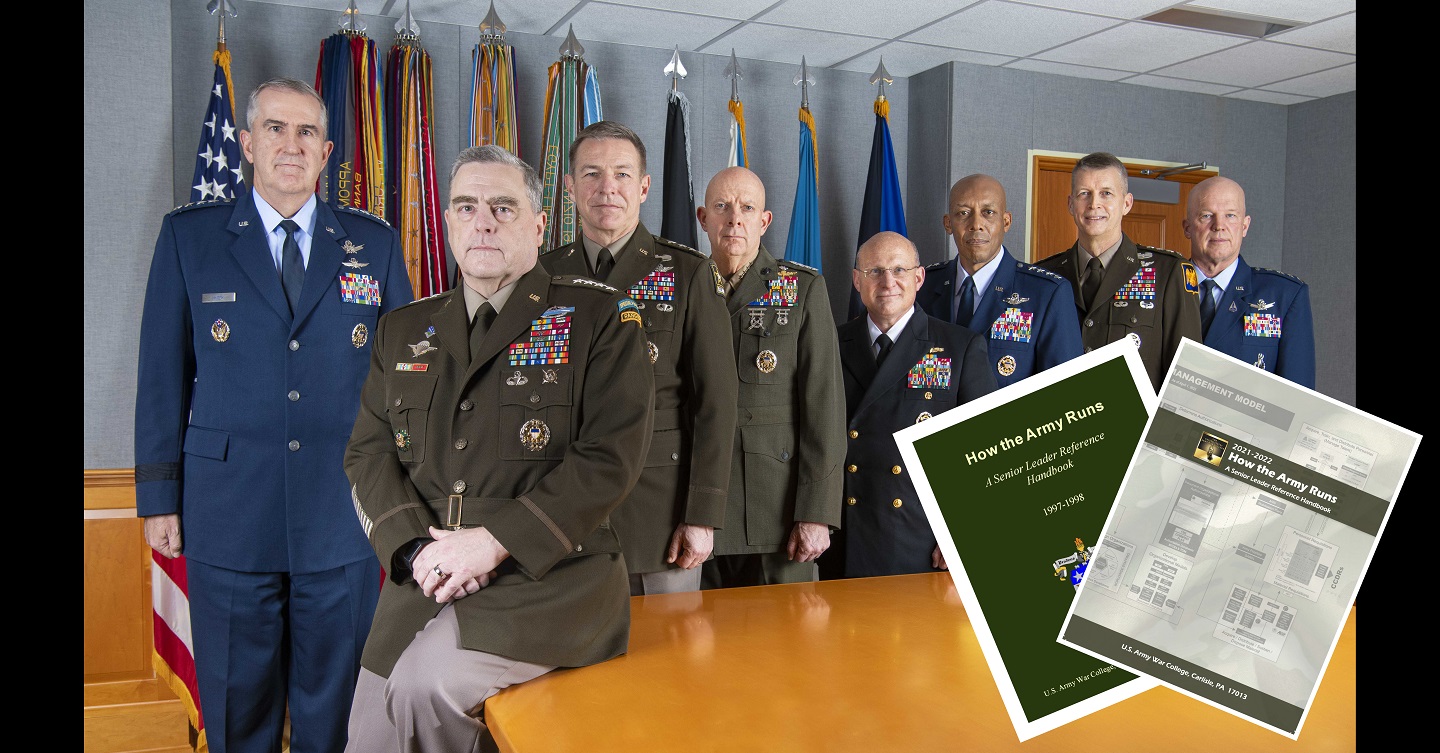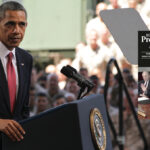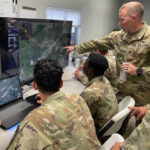
In 1997, the U.S. Army War College produced the first edition of How the Army Runs (HTAR), a reference handbook that documented and explained the processes and organization of the U.S. Army. Published every two years, the document has evolved along with the organization it seeks to capture in writing. As the editor of the last five editions of HTAR, Lou Yuengert was once asked by a former War College commandant, “Have you ever thought about writing a book about how the Army should run?” A Better Peace welcomes Lou to the studio to kick off a new series to examine whether the organization and operation of the Army is really the best way to conduct business in the joint world. He sits down with War Room Senior Editor Tom Galvin to consider what works and what doesn’t and why. The two have an excellent conversation setting the stage for future episodes that hope to not just critique, but to offer innovative suggestions and even praise those elements that work well.
Over time the purpose of the Department of Defense has become…to deter potential adversaries so we don’t have to fight, because it’s so expensive in many different ways, not just money.
Podcast: Download
Subscribe: Apple Podcasts | Spotify | Amazon Music | Android | Pandora | iHeartRadio | Blubrry | Podchaser | Podcast Index | TuneIn | Deezer | Youtube Music | RSS | Subscribe to A Better Peace: The War Room Podcast
Louis Yuengert is the Professor of Defense Leadership and Enterprise Management in the Department of Command, Leadership, and Management at the U.S. Army War College. He is a former course director for the Defense Management core course and he teaches with the Carlisle Scholars Program, a special program.
Tom Galvin is Associate Professor of Resource Management in the Department of Command Leadership and Management (DCLM) as well as the leadership and management instructor for the Carlisle Scholars Program. at the United States Army War College. He is the author of the monograph Leading Change in Military Organizations and companion Experiential Activity Book.
The views expressed in this presentation are those of the speakers and do not necessarily reflect those of the U.S. Army War College, U.S. Army, or Department of Defense.
Photo Description: Members of the Joint Chiefs of Staff are photographed in the Joint Chiefs of Staff conference room, more commonly referred to as “The Tank”, in the Pentagon, Dec. 11, 2020. From left to right are: Vice Chairman of the Joint Chiefs of Staff Air Force General John E. Hyten, Chairman of the Joint Chiefs of Staff Army General Mark A. Milley, Chief of Staff of the Army General James C. McConville, Commandant of the Marine Corps General David H. Berger, Chief of Naval Operations, Admiral Michael M. Gilday, Chief of Staff of the Air Force General Charles Q. Brown, Jr., Chief of the National Guard Bureau Army General Daniel R. Hokanson, and Chief of Space Operations General John W. Raymond.
General Hyten retired Nov 19, 2021. The current Vice Chairman of the Joint Chiefs of Staff is Admiral Christopher W. Grady, USN. General Raymond retired from active duty on January 1, 2023. The current Chief of Space Operations is General B. Chance Saltzman.
Photo Credit: DOD Photo by Navy Petty Officer 1st Class Carlos M. Vazquez II




From our podcast above:
“Over time the purpose of the Department of Defense has become…to deter potential adversaries so we don’t have to fight, because it’s so expensive in many different ways, not just money.”
A potential problem with “the purpose of the Department of Defense” described above — and thus with the concept of “deterrence” — this would seem to be that neither of these such items appears to be being discussed within the context of a political objective of the United States, for example, within the context of the transformation of other states and societies more along contemporary western political, economic, social and/or value lines.
Thus, the question:
In circumstances in which the United States’ political objective is, for example, transforming other states and societies more along contemporary western political, economic, social and/or value lines, can entities (great nations and/or small; state and/or non-state actors) — not wishing to be so “transformed” — actually be “deterred” (from fighting back against such unwanted “transformations”) by our Department of Defense?
(This, given that — due to the suggested U.S. political objective — such things as “honor, interest and fear” are significantly “in play” here.)
With regard to the question I ask above, to wit: can states and societies who do not wish to be “transformed” (more along contemporary western political, economic, social and/or value lines) actually be “deterred” by our Department of Defense — from fighting back against these such unwanted transformations — this, given that such things as “honor, interest and fear” are so significantly “in play” in these such circumstances?
As to this such question, might we consider that the Islamists would not seem to be “deterred” by our DoD — from fighting back against such unwanted transformations — likewise, the North Koreans, also, would not seem to be “deterred” by our DoD — from fighting back against such unwanted transformations — also the Iranians would not seem to be “deterred” by our DoD — from fighting back against such unwanted transformations — the Russians and the Chinese, also, would not seem to be “deterred” by our DoD — from fighting back against such unwanted transformations — and even people here in the U.S./the West would not seem to be “deterred” by our DoD — from fighting back against such unwanted “transformational” attempts being made here at home.
From this such perspective, it would seem that our Department of Defense is not organized, ordered, oriented — and/or “run,”etc. — so as to effectively (a) “deter” anyone and, thereby, (b) help the U.S. achieve what might be called its — primary and perpetual — political objective?
If “the purpose of the Department of Defense,” post-the Old Cold War, has not been “deterrence,” then, post-the Old Cold War, what has DoD’s purpose been?
As to this such question, consider the following from the 2016 edition of the book “Exporting Security: International Engagement, Security Cooperation, and the Changing Face of the US Military” by U.S. Naval War College Professor Derek S. Reveron; therein, see the bottom of Page 2 of the Introduction chapter:
“Since the 1990s the focus of American international security policy has been focused on creating conditions for extending zones of security and prosperity to other states under the theory that ‘political as well as economic globalization would make the world safer — and more profitable — for the United States.’ Consequently, the United States saw expansion, rather than retraction, of American military presence around the world.”
Question One:
As to this such suggested “purpose of our Department of Defense,” might we say that it may, indeed, be somewhat more consistent with — and thus somewhat more supporting of — the U.S. political objective that I suggest above, to wit: the transformation of other states and societies more along contemporary Western political, economic, social and/or value lines?
Question Two:
However, based on the defensive actions of states and/or societies thus threatened by the U.S./the West’s such “transformative” agenda (which includes the states and societies within the U.S./the West itself), can we actually say that (a) by way of these such transformative attempts (b) “the world has been made safer — and more profitable — for the United States?”
I enjoyed this first episode on this topic. The point about culture being a significant impediment is spot-on – each of the Services have their own unique culture. I was surprised that the discussion only addressed the Navy and Air Force cultures as being an impediment. From my experience, the Army’s culture is also as much of an impediment to improvement as either of the other two services. I have found the Army culture to be very tactically, near-term focused; traditionally-bound; risk-adverse; and full of hubris – that we have nothing that we need to learn from the other two services or their culture.
And that Army culture seems to be strongest amongst its military members. The podcast raises the possibility of greatly diminishing the Service secretariat levels (with a strengthening of DOD civilian staffs) with The service military headquarters staffs supporting these DOD civilians. Might it be more beneficial to dramatically reduce the military headquarters staffs instead – then the military would more truly be a civilian-led organization.